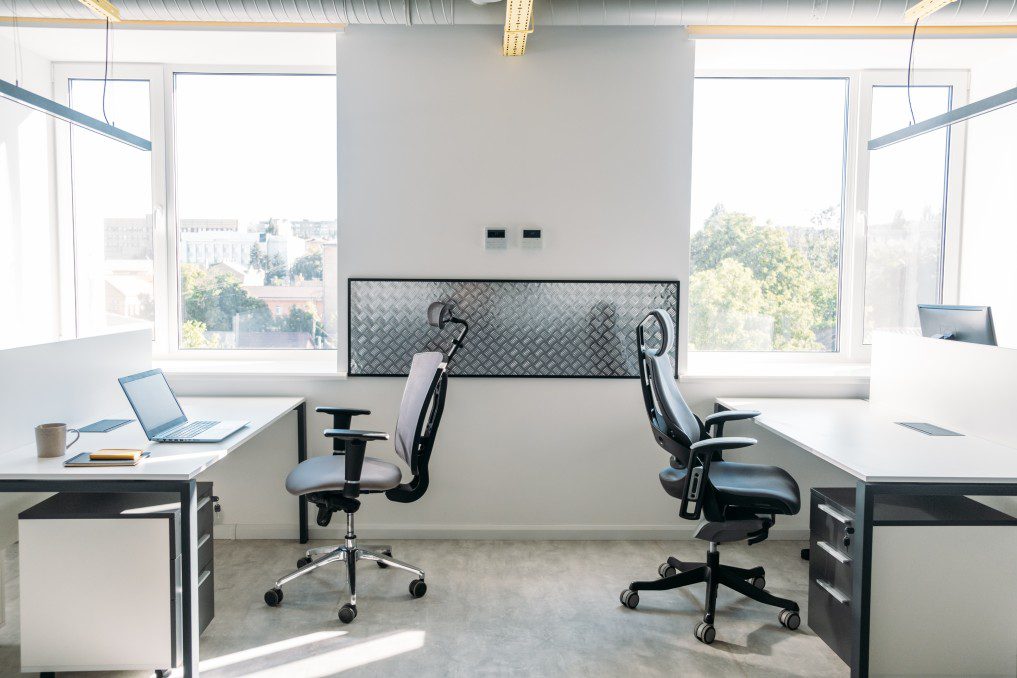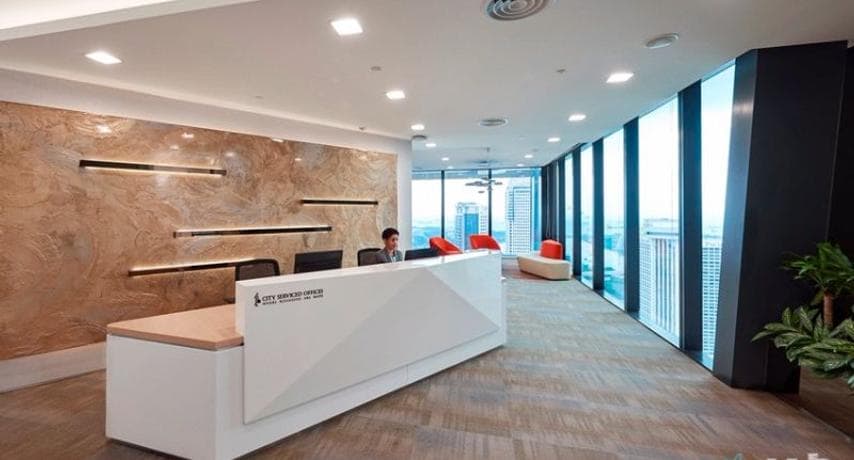
There is no single workplace option that can meet the needs of all sorts of businesses. Some businesses find that settling in a typical office location is the best option for their investment and company ambitions. Other companies that don’t have a strong foothold yet may choose a serviced office solution.
To choose which option will best suit your business requirements, you need to consider the features and benefits of traditional office spaces vs serviced offices. But before that, let us define first what these two types of workspaces are.
(Talk to our team thru chat to learn more about what type of office space suits your needs.)
What is a traditional office?

A traditional office is rented directly from a landlord, usually on a per-square-foot-per-year basis. Traditional offices are better suited to long-term leasing and are a smart choice for well-established firms that know they’ll need a long-term place for employees as well as the space and facilities to host larger groups of visitors.
Although traditional workspaces or offices for rent provide you complete control over how you design, occupy, and manage your space, they are subject to CAPEX, or capital expenditure expenditures, which may be substantial depending on the size of the space and the amount of work required to make it a productive workplace.
What is a service office?

Serviced offices, also known as flexible workplaces, or coworking spaces, offer office space to businesses on short-term or long-term leases, with prices based on the number of workstations required rather than square feet of office space. You won’t be paying for wasted space because you’ll only be paying for what you need, which might save you a lot of money in the long run.
These types of office-as-a-service options are ideal for new enterprises that are rapidly expanding, as well as start-ups looking for short- to medium-term contracts and the ability to move in and out of offices with ease. They’re also ideal for businesses that may need to expand or shrink their employees in the future and need the flexibility to adjust their workspace accordingly. The office becomes an OPEX (operating expense) rather to a CAPEX (capital expenditure) cost, which relieves strain on small firms and start-ups. However, because you’re paying for convenience, flexibility, and services, be sure you know what is included and what isn’t before you decide.
Differences Between Serviced Offices and Traditional Offices

1. Lease or Rental terms
A serviced office lease might be as short as a few months, whereas standard offices often require long-term leases of several years. Because of its manageable monthly payment plans that cover the facilities and other services such as cleaning, equipment, and maintenance, a serviced office may be a better workplace solution for businesses that want to test the waters or are in a stage where growth and returns on investment are uncertain.
Established companies or businesses with more predictable growth might be better suited investing in traditional office space, which offers a permanent office space or main site of operations, including their own equipment and facilities as part of their long-term investments.
2. Facilities and Services
Serviced offices are completely equipped with office furniture that you need, as well as facilities including advanced IT infrastructure and telecommunications equipment. There is also access to conference rooms and meeting locations with full facilities and equipment. Tenants can pay for the use of various office facilities according to their demands, giving them greater operational cost flexibility. Secretarial and administrative support may also be included in the package.
In a traditional office space, the tenant would have to hire its own design and layout team or agency. The company will also need to purchase its own equipment and provide a variety of facilities and amenities for the company and its staff. As a result, tenants will not be able to move into the new office until the entire setup is complete. While the traditional office may be more expensive to build and design, it can be a good long-term investment for a developing or established firm that wants to define its own culture and have a more personalised workplace.
3. Maintenance
The tenant of a serviced office would not be required to hire its own cleaning crew, property maintenance crew, or service people. With innovative methods and facilities, security is provided 24 hours a day, seven days a week. Everything will be handled by management as part of the service charge or monthly payment. In a traditional office setting, the corporation would either have to hire its own cleaning, security, and maintenance staff or outsource these functions. As a result, the renter will have more control over the cleaning and upkeep of their workspace.
Wrapping Up
Large firms, more established enterprises, businesses with certain growth, businesses with solid resources for investments, and tenants who can commit to a long-term lease are the ideal candidates for traditional office spaces.
SMEs, startups, home-based enterprises, firms searching for a temporary workspace, global organizations expanding into new markets, and renters looking for more flexible lease terms might consider serviced office solutions.
So, when deciding between a serviced and a traditional office, think about what you need to run a profitable company. A serviced office could be the perfect workspace for you if you need a space for a team with a more flexible schedule and plenty of perks.

Enterprise software development experience. More recently in positions including CTO, Lead Developer and Head of Product in Australia. Deep expertise in property and legal technology in Australia with a specialty in lead generation and tech scalability across Asia-Pacific.